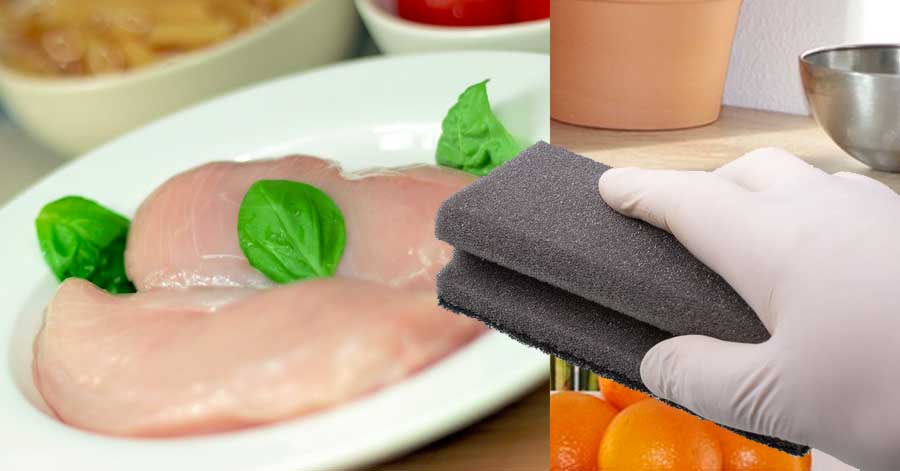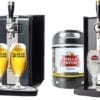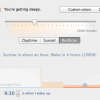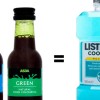First of all, it’s important for us all to remember that if we’re ‘too clean’ we may find ourselves susceptible to future issues, however, good hygiene is about preventing the spread of germs at times and in places and situations where it really matters, such as when preparing food, after using the toilet, after sneezing and when someone’s ill with an infection.
- Chicken – The silent killer! 50% of raw chicken purchased from supermarkets etc are covered in pathogens (e.g. salmonella, E. coli, or campylobacter). The vast majority of these pathogens are killed off when cooking however any surface that comes in contact with raw chicken needs to be cleaned properly. Chopping boards, knife, hands etc. You should also NEVER wash raw chicken breasts as the water will splash these nasties around your kitchen
- Defrosting meat – When you’re defrosting raw meat in the fridge make sure any drips from the meat juices or the ice melting will go nowhere near any other items, for the same reason as above these juices will contain all sorts of nasties! These defrosting trays are good. If the meat is just in a sandwich bag then place that in a bowl or piece of Tupperware(these are good). Ensure you don’t have raw and cooked meats in the same part of the fridge as it’s easy for cross contamination.
- Placing hot/warm pots and pans into the fridge – I know I’m partly guilty of this one, always ensure you let the food cool down and then place in a suitable container (these are good) and place in the fridge. Placing warm things in fridges will allow the other items in the fridge to increase in temperature and if it’s hot enough it’s the same as taking those things out of the fridge and placing them on the side.
- Soggy Sponges = Bacteria hot spot. Don’t leave them soaking in water all day, pull them out and place them on the sink top to dry out. Make sure you also replace them often as they will contain tons of Bacteria. A brush (these are good) is a better bet as you can easily clean this (with bleach or in a dishwasher).
- Leaving food out longer than it should – We all love yesterday’s takeaway warmed up but if you leave anything out in room temperature for longer than 2 hours it will most likely start to grow bacteria which may give you a poorly stomach or worse! Things to watch out for are soups, casseroles, takeaways & anything with Dairy in.
- One tea towel for everything – We’ve all done it, washed our chicken covered hands and then dried those hands with the same tea towel used to dry the dishes! Be sure to also wash them all on a hot wash and not with your normal clothing wash.
- Bleach that chopping board – A bit of soap and water each day isn’t going to completely destroy the bacteria on your chopping board, instead make a bleach & water solution and wash it thoroughly especially between the cuts / grooves etc.
- Using your sponge / dish cloth etc to wipe the surfaces – You’re often just spreading the dirt around, instead use paper towels or an additional cloth (these are great).
- Give your sink a spring clean – Every couple of days! Supposedly kitchen sinks are as bad as most people’s toilet seats for bacteria and often we will drop fresh food in whilst washing and won’t think twice about picking it up and smashing it in our mouths. Remove the thin film layer of dirt, bacteria every couple of days.
- Animals on work surfaces – Especially Cats – They have litter trays full of urine, poo etc which they step in often and then they go outside hunting for rodents etc and then you let them wander over where you eat/cook etc. Nom Nom Nom!




























